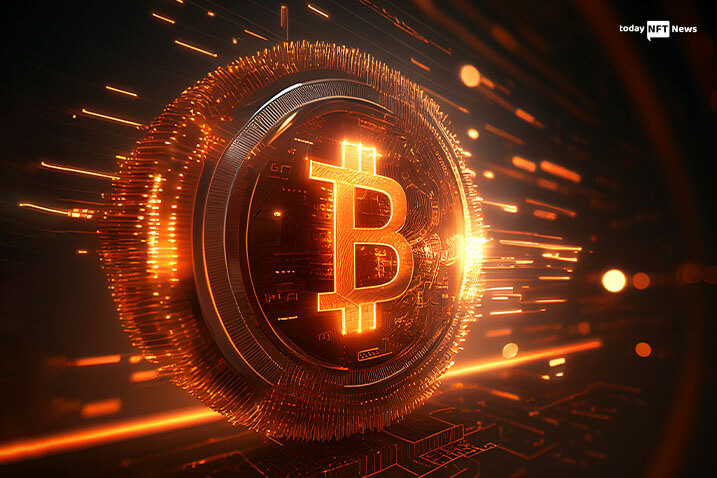SNEAK PEEK
- The Tarproot patch allows users to add anything to the Bitcoin blockchain, including video games and ape knockoffs.
- The use of Ordinals has produced more than 1,000 Bitcoin NFTs.
- On Friday, bitcoin was trading at up to 8%
There has been a spike in activity around Ordinals, a controversial open-source project that allows users to store NFT-like media assets on the Bitcoin network. On Thursday, Ordinals had its highest volume, which drives up network costs.
More than 1,000 Bitcoin NFTs have been created using Ordinals, with 420 more “verses” added on Thursday, according to public blockchain data compiled by Dune. On Wednesday, 3X NFTs were created using the technique.
YCharts statistics show that Thursday also had the highest average transaction fee on Bitcoin, with $1.53 BTC in more than a month.
The release of Ordinals reignited a long and divisive debate about block sizes, valid transactions, and whether or not to include JPEGs or other content on the original chain. The Tarproot patch has made it possible to put anything on the Bitcoin blockchain, including video games and knockoffs of bored apes.
Digital assets, or NFTs, are linked to other digital items such as music, movies, and artwork.
tl;dr after digging into the Ordinals "spam" debacle:
— Seth For Privacy (@sethforprivacy) February 3, 2023
1) This has been possible since SegWit
2) Taproot didn't enable this, it just made it (very) slightly easier and cheaper
3) Prepare for the FUD as proponents of Bitcoin's early ossification try to weaponize this w/o nuance
Transaction fees have risen due to NFTs being added to the Bitcoin mainnet. Transaction fees for Bitcoin are based on the amount of data involved in the transaction and the user’s preferred time for the transaction. In times of heavy traffic, users can pay higher prices to make their transactions proceed faster.
Bitcoin transaction fees peaked at 2.10% on January 21, when Ordinals launched, but reached 3.44% on January 24, four days later. On Thursday morning, this figure was 3.86%.
By late Friday afternoon, the proportion of ordinary coins added to the Bitcoin network had risen to 8%. Due to the increase in transaction fees, some Bitcoin maximalists view “Ordinaries” as an insult to the Bitcoin spirit. Others claim that the project facilitates decentralized network spamming.









